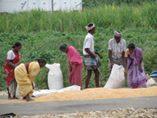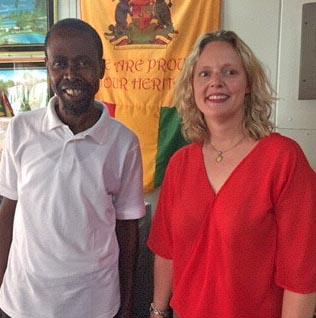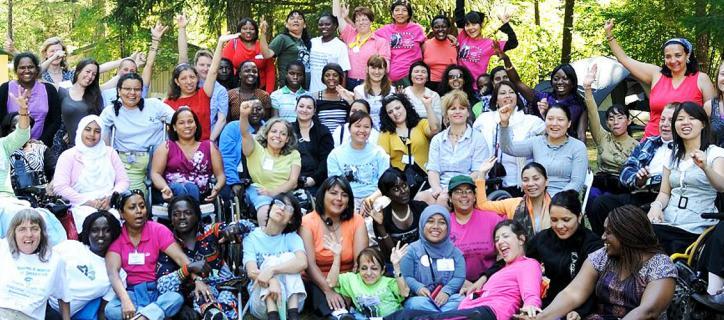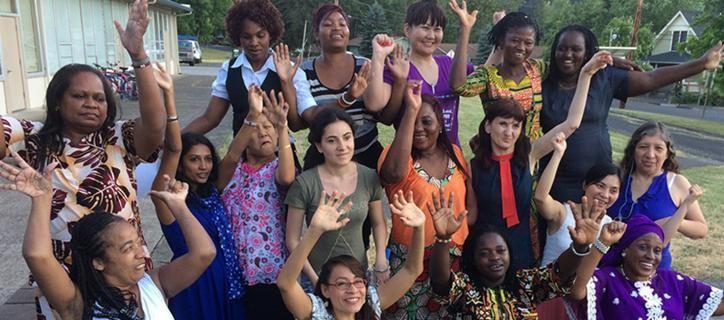Legal Justice for All
Access to justice, as a fundamental right, is enshrined in Article 8 "Right to Effective Judiciary" of the Universal Declaration of Human Rights and should be accessible to everyone. The sad reality is that in many countries around the world, legal justice is not readily accessible.
Often, marginalized populations and people living in poverty face numerous obstacles in accessing justice, including high legal costs, discrimination and a general lack of information. This has made accessing justice more of a commodity of the wealthy and influential than a right for all. In this regard, “we as a global society have not truly progressed beyond feudal times.” says the Global Alliance for Legal Aid (GALA).
To help change some of the existent inequalities in accessing justice, GALA, an association of jurists, provides free legal aid and public interest advocacy to those who most need it, specifically in Global South countries.
“GALA: where no advocate is an island.”
Current Global Initiatives
It is often difficult for certain groups and individuals to find free legal assistance. This includes victims of a land grab, those suffering harm due to environmental pollution or other bodily harm by illegal government or corporate conduct, abused women seeking to file for divorce, or those who have been deceived by providers of unregulated financial services. For example, as a result of a pyramid scheme in Uganda, thousands of people have lost millions of dollars. GALA currently represents 3,000 victims of this scheme by working together with its local partner, the head of the business/law faculty at Makerere University in Kampala.
"GALA’s issue scope ranges from public interest advocacy for victims of financial fraudsters; to land grab defense and prevention; environmental protection; prison reform; women’s and widow’s rights, migrants’ rights and legal aid for the poor."
GALA told us that, in Uganda, as a consequence of fraud by fake micro-finance institutions “several of the victims committed suicide” and that “the criminals are living openly, enjoying the fruits of their theft and the state has not prosecuted them.” The reason being that they have “paid off judges and politicians but the poor cannot pay for justice”. In addition to working in Uganda, the association has a new partnership in Kuwait and ongoing initiatives in Grenada.
Envisioning Legal Aid Clinics

Beyond GALA’s current initiatives, the association is planning further outreach in India and Greece, the ‘birthplace of democracy.’ The association describes simply undemocratic and unconstitutional that the Greek courts “have been requiring that persons who want to enforce their rights file a bond based on the potential value of the case.” This is a clear obstacle to enforcing rights of the marginalized and poor parts of the society. So, one of the projects GALA is thinking about are legal aid clinics.
“What we have found thus far is that in places where GALA is working, there are not any legal aid clinics or pro bono lawyers.”
This of course takes not only much planning but also funding. GALA is now working on a feasibility study in Kampala and Grenada aiming to start supplying legal aid and establishing its own clinics. It’s hard to imagine but the association told us that in Grenada (population of 100,000) “there is no legal aid provided on the island whatsoever, [there are] only 12 criminal defense lawyers” and there no law faculty. In fact:
“The ‘local’ university is in reality a US medical school.”- GALA

In such a difficult case and environment, as GALA described, the association will be starting from ground zero but is determined to offer legal aid and information “both to the accused who are incarcerated ‘on remand’ awaiting trial, and to crime victims”. The association is considering seeking support of law students from other countries but with the supervision by a local lawyer and the Grenada Human Rights Association, GALA’s affiliate.
Similarly in Uganda, GALA envisions 2016 as a year where they would start providing legal aid through law students supervised by a law professor or practitioner and through GALA’s local partner, the head of the business/law faculty at Makerere University. Stay tuned for this!
“A taste of Justice”
To support its mission, ongoing and planned initiatives, GALA sells fair trade products such as its current offer, coffee from Uganda through a partnership with Thanksgiving coffee. GALA plans to establish other fair trade product sales and distribution in order to sell a product from every country where it provides legal aid or supports a public interest case. Here you can visit GALA's coffee online store.


